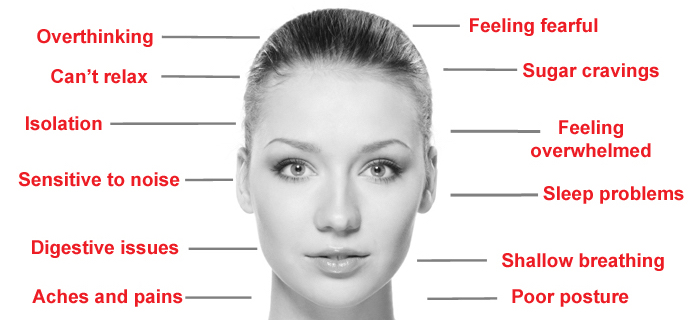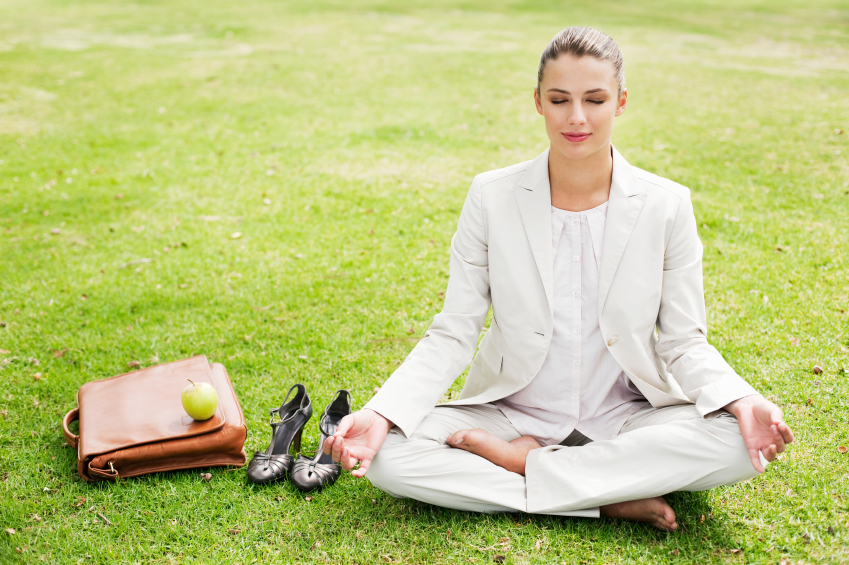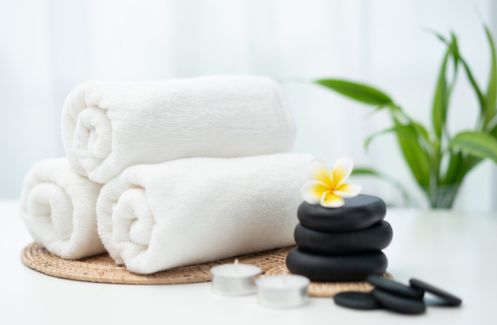We all feel overwhelmed occasionally but for some, this can reach a breaking point – literally breakdown – where coping with the simplest, everyday tasks can be difficult and exhausting. Stress expert and Healthista blogger Charlotte Watts on recognising the warning signs
‘Nervous breakdown’ is the term that used to be applied to that state reached when things tip over the edge of coping, functioning and being able to find a positive outlook on life. Recently, the term ‘burnout’ is more commonly used to describe physical and mental collapse. Whatever the label, the feeling is one of exhaustion, depletion and loss of responses; a kind of numbness.
The chronic stress that usually comes before a breakdown is heightened, excitory and characterised by a feeling of ‘constant alert’. If this state persists, it can literally burn out resources and we can be left in the downward crash on the other side – listless, fatigued, demotivated and unresponsive to situations and people and locked in a shut-down place where our minds and bodies conserve energy for recovery.
Burnout or breakdown falls outside the category of a ‘true’ disease, and is often medically treated as depression – or not at all
Burnout falls outside the category of a ‘true’ disease, and is often medically treated as depression – or not at all – even though evidence shows it’s associated with coronary disease and heart attacks. In a 2013 paper titled The Medical Perspective on Burnout, lowered stress reactions were shown, meaning that after a period of over-activity, these responses can dampen and shut down, leaving us feeling indifferent, numb and unable to get going. This can even stop us having appropriate reactions to circumstances we should be registering as stressful – like not studying for an exam or finding a better job when we feel unhappy at work.

life can be both stressful and difficult.
High stress demands aren’t necessarily burnout, but they can lead to system overload. That can lead to collapse if we don’t recognise that it is an unsustainable plan to keep going and going without let up or giving ourselves the chance to recover. The trouble is, we are often used to running things at a high and fast level, so that this pace just seems ‘normal’; especially when everyone around us is rushing at that speed too.
It’s not just job and family demands, but also piling on top of all that the expectations we put on ourselves about what we need to be doing with our leisure time. That film to see, event to go to and not saying no when we really know we need rest and recuperation are habits that chip away at our energy and mental resources. Recovery, quiet time and space is not missing out, it’s the recharge that allows us to actually enjoy how we live and work, rather than just feel we’re going through the motions without enthusiasm or just about getting through the day.
If you can relate to any the following phrases, it’s time to prioritise recharging over draining resources:
- ‘I can’t cope anymore’
- ‘Everything is just too much’
- ‘I just want to hide away’
- ‘I feel close to the edge’
The signs below are just some of those commonly seen before a breakdown – your doctor can help assess your situation and recognise other patterns. These may have been creeping up on you for a while, so they may not even seem like dramatic change or related symptoms, but they are all worth listening to and not dismissing as just stress.
Physiological
- Body aches and poor recovery from bugs and illnesses
- Digestion issues: bloating, constipation and diarrhoea
- Sugar and stimulant cravings
Stress symptoms are a result of running everything too high, for too long – this uses up energy that signals a want for quick-fix energy foods. This translates across all body systems: digestive, immune, nervous, endocrine (hormonal) and so on. With all systems heightened, immunity can suffer and inflammation result in pain, skin and digestive issues. Full digestion relies on a calm nervous system state and it struggles to regulate and fully absorb nutrients and eliminate toxins when compromised.
If we choose good quality protein like free-range meat, fish, eggs or goat’s cheese and plenty of mineral-rich vegetables and salad, we are less likely to turn to sugary snacks and caffeine to keep us going.
How to help yourself: sitting down to allow meal times to be punctuations in a frenzied day can help on so many levels. The act of taking time away from doing and focusing instead on the sensory, bodily experience of eating (not emailing during!) takes us away from constant brain chatter and helps the body and breath settle. In turn. this allows us to chew and fully digest our food for all-body health.
If we choose good quality protein like free-range meat, fish, eggs or goat’s cheese and plenty of mineral-rich vegetables and salad, we are less likely to turn to sugary snacks and caffeine to keep us going. Start the day like this and you are much more likely to find a reasonable pace that gets things done without wearing you out. The improved focus, memory and decision-making that results can fend off stress too.
Physical behaviour
- Posture collapsed
- Breathing more shallow
- Reactive to noise, light and sudden movements
It is part of our bodies’ protective mechanisms to curl ourselves inwards to protect our soft bellies and hunched posture is often associated with chronic stress, depression and burnout. This helps counter the tendency to be jumpy and easily startled that comes with ‘constant alert’ – heightened senses are a key survival strategy for awareness of possible attack. But if we get stuck in that mode, noise and bright light can seem unbearable. It can be difficult to listen to just one voice in a crowd for instance, so social situations become overwhelming.
How to help yourself: Always find the peace and quiet you need, taking yourself away to regroup wherever possible. Sitting up straight wakes up the lower brain so we can think more clearly and allows opening of the chest and diaphragm that helps us take the full inhalations that naturally energise and the full exhalations that release tension held in muscle and mind.
Laying down to focus on these breaths allows chest opening without tightness in the shoulders and neck. It also helps to foster that important sense of safety and you may even feel you need to lie on your side in a protective foetal position. If sitting at a desk is adding to your hunched posture, regularly walk around and stretch upwards. If you can walk outside, greenery is always more calming than walking in urban environments, even just a park.
Emotional outlook
- Internal monologue and dialogue on overdrive
- Fear-based reactions dominating – sensitivity to others’ opinions
- Fear around relaxing, yet often tired
Stress is a heightened, excitatory response – galvanizing energy for the motivation and focus to get things done. It is also survival mode, meaning it can promote a fear-based outlook for self-protection. Anxiety, helplessness and fears around future events and safety can become dominant and cloud our actions and decisions, keeping us in vicious cycles that add to stress.
How to help yourself: Safety is the key word here – places and situations where you feel comforted, calm and supported can create refuges where you can feel safe enough to relax fully in mind and body. Whether it’s time with a good friend, long baths, walking in the countryside or a talking to a trusted counsellor, these acts of self-kindness can help convince our unconscious mind that we don’t need to stay locked in a state of exhausting vigilance.
Focussing on how your breath feels in your body can help you step aside from negative internal monologues and help appreciate that these are just words, not necessarily ‘how things are’. Your mind is trying to protect you from potential danger. Talk to someone who you feel has a good perspective on life, to help you find objectivity. Look for a 6-8 week Mindfulness course in your area to help develop techniques to intercept the internal voices and help give you space to relax.
How you move through life
- Ordinary tasks seem like hard work
- Feeling a need to isolate yourself
- Poor quality sleep leaving you unrefreshed in the day
The stress overload that can lead to burnout expresses differently for each of us; ranging from anxiety to palpitations to panic attacks to paranoia, these are all our nervous system on a loop of reactivity. This is basically tiring, leaving us with little energy to get through the day. Emoting and reacting also takes energy and it then makes most sense to protective mechanisms to remove ourselves from too much stimulus. High stress hormones in the evening can interfere with the recovery that deep sleep provides and keep us reacting to small stresses in ways that might seem inappropriately intense.
How to help yourself: we have become used to high stimulus, so being with peace and quiet can now seem alien and even scary. Our brains simply weren’t built to receive the level of information input they are now blasted with, from sources like social media to continual news of disaster and violence, these do not help our world view that things are safe. Looking at screens at night interferes with production of the sleep hormone melatonin and provokes micro eye movements that keep us on alert.
Make distance between you and technology as often as possible and move towards activities that bring down stress hormones; music, non-tech games, creative pursuits and yoga. Going for regular walks as breaks provides the natural movement that brings down stress hormones and regulates breathing.
Let others help you and learn to ask for help.
Too much of anything – partying, working, parenting and looking after others over yourself – is an imbalance. To prevent exhaustion and worsening of stress-related conditions, we need to reset and allow all systems to recognize the resting place they need to routinely come back to. Let others help you and learn to ask for help.
More by Charlotte Watts:
Stressed out? The secrets to dealing with it are in your BELLY – our blogger has 7 ways healing your gut can heal your head
5 office exercises to up your energy at work
10 ways to deal with stress and anxiety you’ve NEVER heard of
7 surprising signs you’re stressed
6 ways to have more energy through the day
CHARLOTTE WATTS is a nutritionist and yoga teacher whose work has focussed on how nutrition and yoga can meet to help people cope with the type of demands we face in the 21st century. Her practice and teaching of mindfulness weaves these together and has culminated in her new book The De-Stress Effect: Rebalance Your Body’s Systems for Vibrant Health and Happiness. She has also authored The De-Stress Diet (with Anna Magee), 100 Top Recipes for Happy Kids, 100 Best Foods for Pregnancy and 100 Foods to Stay Young.
Like this article? Sign up to our newsletter to get more articles like this delivered straight to your inbox.




















































































































